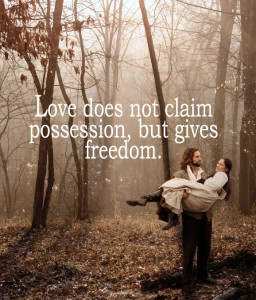Bee Pure, Bee Resilient and Bee Grateful are three different and swoon-worthy juices that will provide a day’s worth of delicious nutrition. While society pushes us to vary what we eat—and it’s pretty much a necessity for maintaining a balanced diet—who’s to say that same need for, er, “variety” isn’t applicable to other areas of life?
This month, we honor variety of another kind: our ability to bee in love with more than one juice—and, daresay, one person—and beeing brave enough to explore it.
If you’re a person of a certain age, chances are you’ve run the gamut of relationships.
Maybe you’ve been in love, out of love, sworn off love, or don’t know if you’ve actually seen it.
Whether with men, women and/or both, maybe you feel like you broke love or love broke you.
Maybe, try as you did, you couldn’t connect with the face across the pillow that you chose for as long as you both shall live.
Maybe love’s not your gig, and maybe it’s all you ever wanted.
Maybe you partnered flawlessly and your other half died. Or maybe, when he or she walked out, the corpse left in their wake was you.
For centuries we’ve been conditioned to frame love and loss through a somewhat Colonial and Puritanical lens. But today’s truth is this: More and more people are exploring how to wrap their minds around giving love, seeking love and receiving it from more than one person at a time. And they’re pretty timid to admit it.
Beecause of this, for the 30- to 50-year-old demographic, bookstore shelves are thin from sales of titles that today’s women seem starved to digest: alternative relationships, polyamory, and the fact that some people’s capacity to love can be so abundant, the ages-old construct of monogamy—the choice to partner with one person at a time—doesn’t work for them.
Let that creep in a little:
Monogamy…feels off.
That may seem harsh, but we couldn’t mean less harm. Books like Esther Perel’s perennial Mating In Captivity, Sex From Scratch: Making Your Own Relationship Rules and The Ethical Slut (and don’t go judging a book by its cover because that last one is profound) are thoughtful and deeply researched missives about open relationships relative to polyamory, which the Polyamory Society calls “the non-possessive, honest, responsible, and ethical philosophy and practice of loving multiple people simultaneously.”
(Now let’s think about that concept for a minute as it applies to how we partner:)
The non-possessive, honest, responsible, and ethical philosophy and practice of loving multiple people simultaneously.
((And call us crazy, but shouldn’t all relationships be like that?))
Actually, the notion of not placing all of our love eggs in the basket of one person to carry is a lot like building a custom TJS Singleton Six-Pack. Sure, it’s safe to buy six bottles of the same juice, especially if it keeps you sipping within the lines of predictability. But what if your soul’s true palate points to not one, but three flavors that independently, symbiotically and chemically fill not just your TJS cardboard carrier but your heart, too? What if we weren’t afraid to admit that the ages-old definition of partnering with one end-all-bee-all person doesn’t work for everyone? Isn’t it possible it would be more fair to our partners if we sought some things from some and others from others, rather than expecting everything from one knight or princess? And what keeps us from being honest about expressing new thoughts about our needs…even if they shatter the status quo?
If we crave multiple people to fill our proverbial love tanks—if we believe that advice like this exists to remind that the human capacity to love is SO abundant that it explains how a mother can equally love each of her children—it may be time to better support one another as we reach for the courage to admit there’s no shame in feigning convention. It may help us force the question that if we have the capacity to love more than one person, and we seek a partner with the flexibility to explore this beautiful way of sharing a life with someone who’s likeminded, maybe together we’ll build bravery to talk about it. Seems like the above books and candid conversations is a pretty good place to start.
At TJS, juice is our one true love. And in this emotive month—and during these emotive decades in people’s lives as we swan dive into our own authenticity after a separation, an uncoupling or a death—there’s zero shame in saying, “Traditional relationships haven’t worked for me. I want more.”
This month—this Valentine’s Day—if you don’t have a “one love,” it hardly means you don’t have love. You can love more than one thing. Know why? Our one true love is that which we do in our lives for ourselves: our career and our parenting; our art; our juice…whatever. And while a handful of Team Bees waxed poetic last week about this very subject, Creative Director Mallory Dawn said it beautifully best:
Our one true love is simply that which moves us; and when we allow ourselves to love more than one person or thing, we invite more love to return to us.
(How does it get any better or less scary than that?)
So for all our talk about being kind to one another, this February (this life?) let’s baby step toward being kind to ourselves while exploring how freeing it could feel to own a face of love that works for us, not one that works for society. Let’s loosen conversations in our friendships and communities that explore just how much our hearts might grow if we drop the fear and inch toward what we think might be true for us…even if it’s not popular. Beecause while monogamy can be our life’s most precious gift if we’re blessed to find our “one,” if how you’ve partnered hasn’t felt quite right, it might be time to change the dance.



